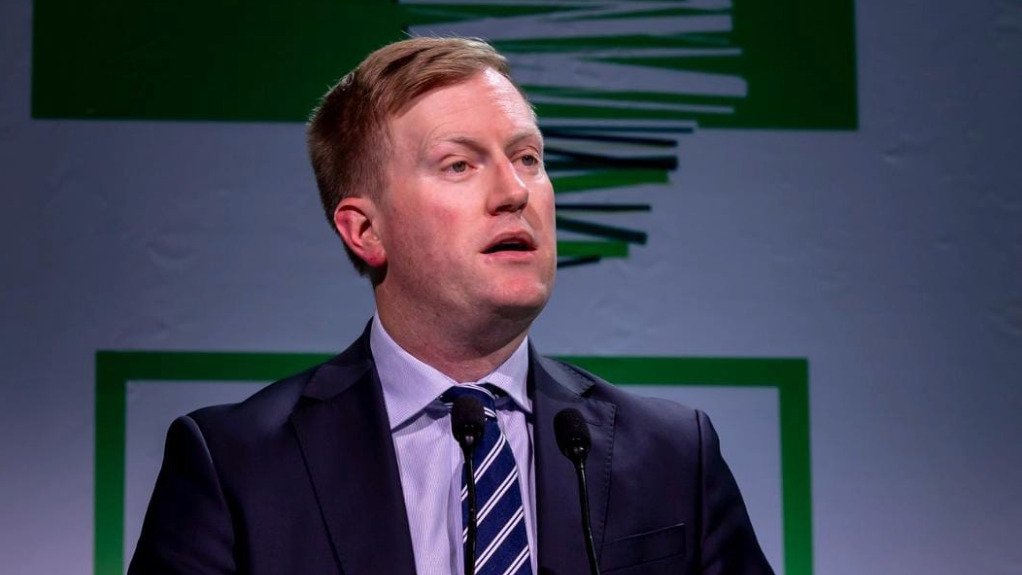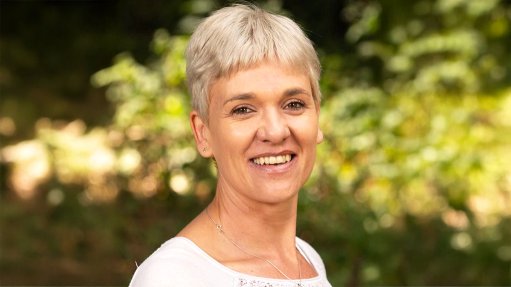Public Works Minister determined to accelerate South African infrastructure development
National Public Works and Infrastructure Minister Dean Macpherson announced on Tuesday that he is establishing an Infrastructure Advisory Committee, in his office, to help drive forward infrastructure development in the country, which was urgently needed. He was delivering the keynote address at the Infrastructure Africa 2024 Conference, at the Cape Town International Convention Centre.
The roles of the new committee will be to help “reimagine” the country’s infrastructure, develop new funding models that would attract private sector investment in projects, and help unblock and accelerate infrastructure development across all three levels of government (national, provincial and local). He stressed the need for coordination, in infrastructure development, across all three of these levels. “We must turn South Africa into a construction site!” he affirmed, several times, during his address, noting that he was consciously repeating it.
“This is not a short-term or overnight dream,” he subsequently elucidated, in answer to a post-address question regarding his “construction site” mantra. “How do we do so in a sustainable and affordable way? We have to work with the private sector. We have to look at financial sustainability.” He pointed out that President Cyril Ramaphosa supported the public sector working with the private sector.
Macpherson added that the State needed to have bankable projects that the private sector would invest in. “Transparency is key to bringing the private sector in.”
“Construction must bring dignity to people’s lives,” he highlighted. “I think that it is appalling that in 2024 we still have pit toilets in South Africa.” (Pit toilets were especially a scandal at rural schools; there had been instances of young pupils falling into them, with fatal consequences.) This was a good example of why infrastructure had to be rolled out in rural areas.
However, he pointed out that government budget cycles – one year or three years – gave very short timelines to develop “shovel-ready” projects. “Infrastructure [projects] need longer than that.” He had suggested to Cabinet that government, and National Treasury, needed a ten-year budget timeline for infrastructure projects.
Also in the Q&A session, he expressed the view that regional infrastructure integration was not treated with the urgency that it needed. Such development would bring trade benefits to the country. He would like to see more rail and air connectivity across the region and the continent. And securing South Africa’s porous borders would be a major infrastructure project.
He further stated that he wanted government departments and public agencies to actually use publicly owned buildings and facilities, instead of hiring their offices from the private sector, at high rentals, “just because they have a sea view”. And where unused government buildings had become derelict, he wanted to look at redeveloping them, for the public good, including for social housing.
To return to his address, in it he also highlighted the problem of site disruptions on large-scale infrastructure projects in the country, by so-called construction mafias, pretending to be small, medium-sized and microenterprises. These disruptions slowed down the delivery of infrastructure, especially in the human settlement, transport, and water and sanitation sectors.
“In 2020 it was reported that these disruptions cost the economy approximately R40 billion,” he cited. “In 2019, according to the South African Cities Network, about 184 infrastructure and construction projects worth an estimated R63 billion were affected by site disruptions across the country. While Government has condemned these actions, police response has not been sufficient and more needs to be done. As Government we will have to strengthen our response to this challenge through community engagement and strict law enforcement. I want to be very clear, anyone who seeks to hold back infrastructure projects must be treated as an enemy of the State. There is no room for negotiations or delays to our projects. We will work with communities as well to own their infrastructure in an attempt to not only protect it from disruptions, but to also increase the life span of these projects.”
Article Enquiry
Email Article
Save Article
Feedback
To advertise email advertising@creamermedia.co.za or click here
Comments
Announcements
What's On
Subscribe to improve your user experience...
Option 1 (equivalent of R125 a month):
Receive a weekly copy of Creamer Media's Engineering News & Mining Weekly magazine
(print copy for those in South Africa and e-magazine for those outside of South Africa)
Receive daily email newsletters
Access to full search results
Access archive of magazine back copies
Access to Projects in Progress
Access to ONE Research Report of your choice in PDF format
Option 2 (equivalent of R375 a month):
All benefits from Option 1
PLUS
Access to Creamer Media's Research Channel Africa for ALL Research Reports, in PDF format, on various industrial and mining sectors
including Electricity; Water; Energy Transition; Hydrogen; Roads, Rail and Ports; Coal; Gold; Platinum; Battery Metals; etc.
Already a subscriber?
Forgotten your password?
Receive weekly copy of Creamer Media's Engineering News & Mining Weekly magazine (print copy for those in South Africa and e-magazine for those outside of South Africa)
➕
Recieve daily email newsletters
➕
Access to full search results
➕
Access archive of magazine back copies
➕
Access to Projects in Progress
➕
Access to ONE Research Report of your choice in PDF format
RESEARCH CHANNEL AFRICA
R4500 (equivalent of R375 a month)
SUBSCRIBEAll benefits from Option 1
➕
Access to Creamer Media's Research Channel Africa for ALL Research Reports on various industrial and mining sectors, in PDF format, including on:
Electricity
➕
Water
➕
Energy Transition
➕
Hydrogen
➕
Roads, Rail and Ports
➕
Coal
➕
Gold
➕
Platinum
➕
Battery Metals
➕
etc.
Receive all benefits from Option 1 or Option 2 delivered to numerous people at your company
➕
Multiple User names and Passwords for simultaneous log-ins
➕
Intranet integration access to all in your organisation




















